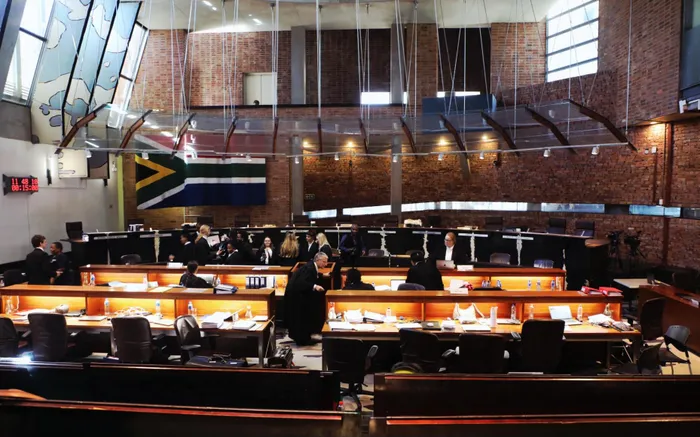Standard Bank accused of ‘frustrating justice’ in Rand manipulation case

The Constitutional Court in Johannesburg listened to a third day of legal arguments relating to allegations of Rand-fixing, following an appeal by the Competition Commission.
Image: Timothy Bernard/ Independent Newspapers
STANDARD Bank, identified as the most aggressive litigant in alleged currency manipulation case, has been accused of frustrating the administration of justice.
This emerged on Thursday when the Competition Commission continued with its Constitutional Court case challenging the judgment of the Competition Appeal Court (CAC) issued last year, in which it found that the majority of the banks do not have to face a trial on the merits of the allegations.
Local banks which form part of the appeal as respondents, together with various international banks, are Standard Bank, FirstRand Bank and Nedbank.
In June 2020, the Commission had referred the case regarding the alleged rand fixing against 28 local and foreign banks to the Competition Tribunal. The banks were ordered by the Tribunal in March 2023 to file their answering affidavits in response to the Commission’s complaint referral, but objected to the Tribunal order and appealed it to the CAC.
The CAC, in its judgment last year, released 17 banks from the complaint referral before they answered the allegations against them and restricted the Commission’s case to only the four respondent banks.
In its current application for leave to appeal, the Commission is appealing the CAC order to the Constitutional Court against 13 banks.
Acting on behalf of Standard Bank, Advocate Kate Hofmeyr accused the Competition Commission of “sticking to its bloody-minded ignorance” by continuing to accuse the bank of allegedly being part of a cartel which manipulated the Rand/US dollar exchange.
She told the Constitutional Court that in 2017, when the commission told the media about its allegations that the banks were allegedly involved in an international cartel colluding to manipulate the Rand/US dollar, Standard Bank’s share price dropped in a few days by 3.8%, which equated to R8.5bn.
She argued that while the commission was investigating the case for a year and a half, it did not meet with Standard Bank at all to obtain information from it regarding the matter.
Hofmeyr said because there was no proper investigation by the commission, it got its facts wrong. In turn, Standard Bank suffered reputational damages while these allegations are hanging over its head.
She told the apex court that Standard Bank should not face the music and be subjected to a trial on the merits of the alleged Rand rigging issue, as it is not involved in the matter.
In his rebuttal following Standard Bank’s submissions, Advocate Thembeka Ngcukaitobi, acting for the commission, argued that of all the respondent banks, Standard Bank is the most aggressive litigant.
He said this matter has been running for the past 10 years because of procedural objections from the respondents, of which Standard Bank is the forerunner.
“We are subjected to protracted legal challenges by this bank, which pleads innocence.”
Ngcukaitobi said while banks, such as Standard Bank had the financial resources to resort to these legal challenges, the commission did not have the same money to face these powerful entities.
Ngcukaitobi said Standard Bank claimed that it did its own investigation into the allegations that there was a single overreaching conspiracy to manipulate the Rand/US dollar exchange.
“But they never told us what they found”.
He argued that it would be irresponsible of the commission to simply not include Standard Bank in its referral to the tribunal simply because the bank said it is not part of the collusion.
Cape Times
Related Topics: